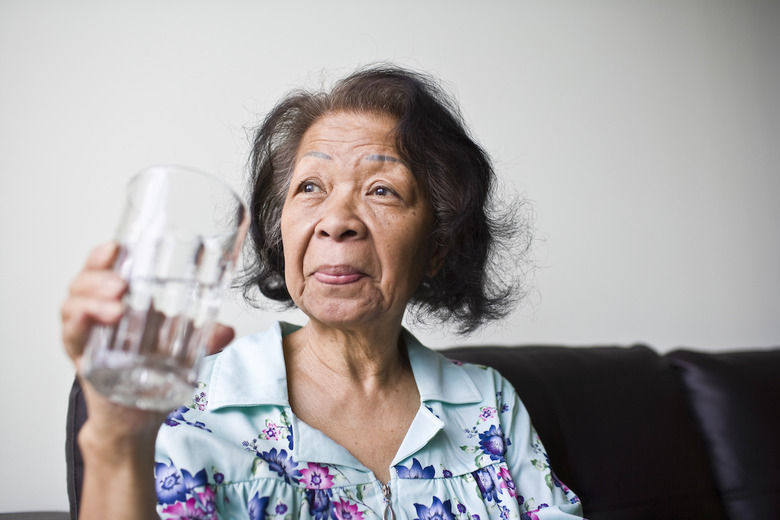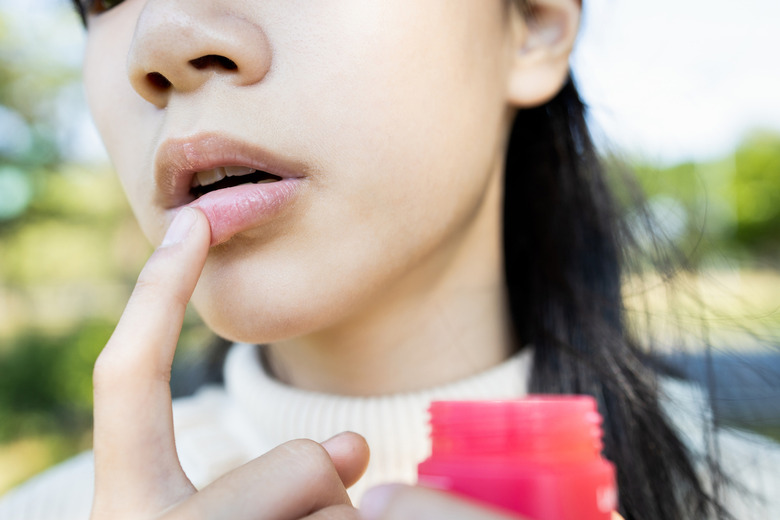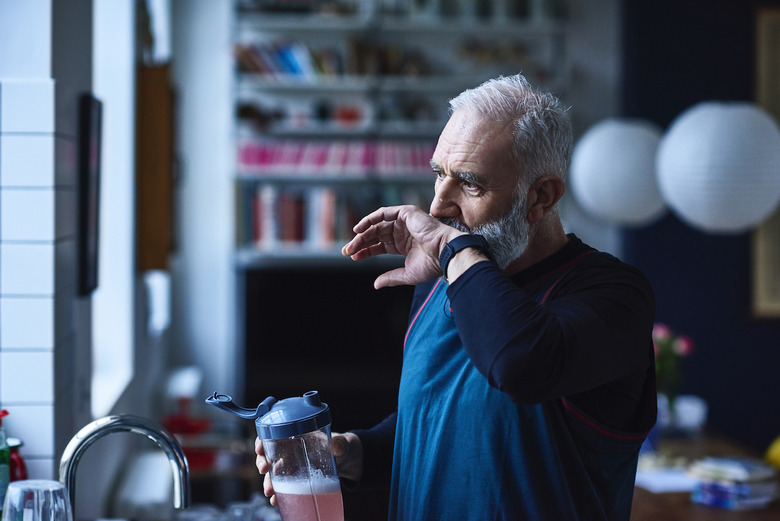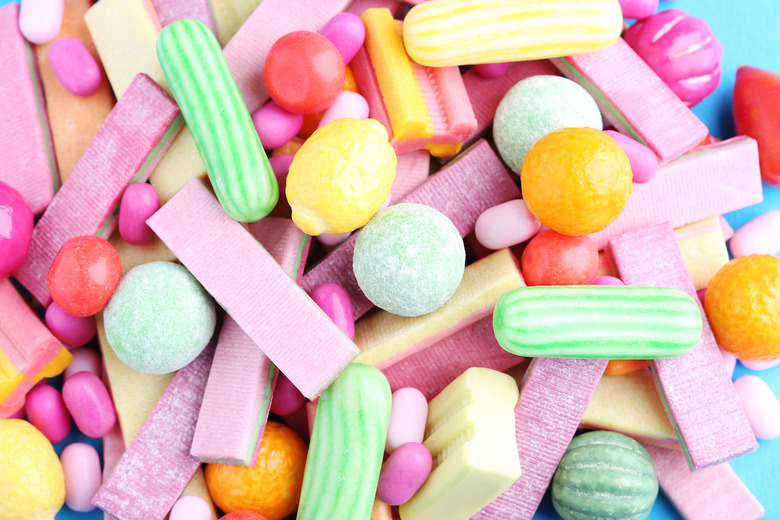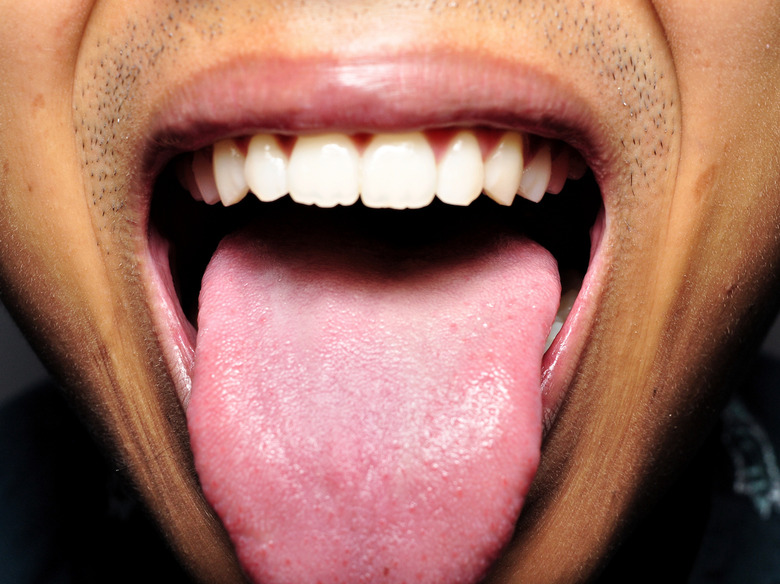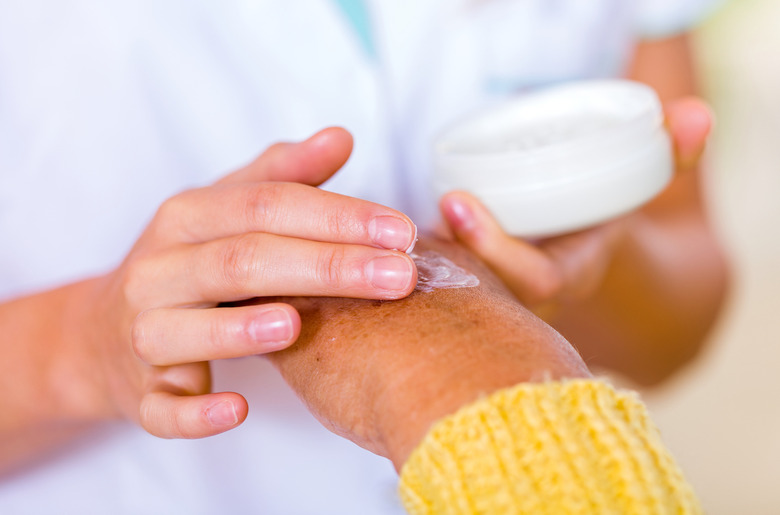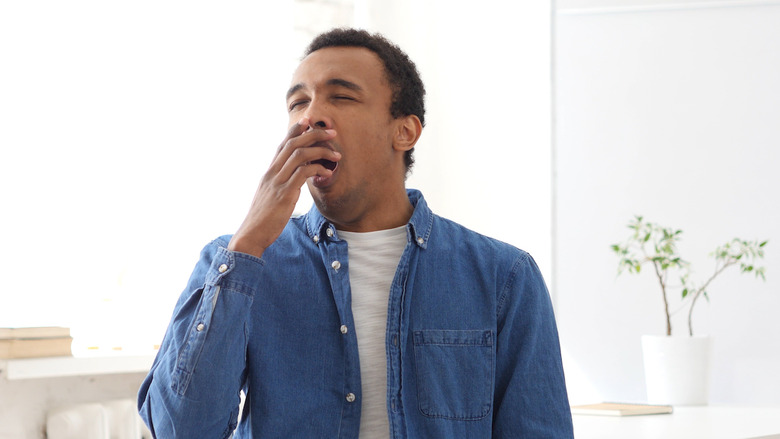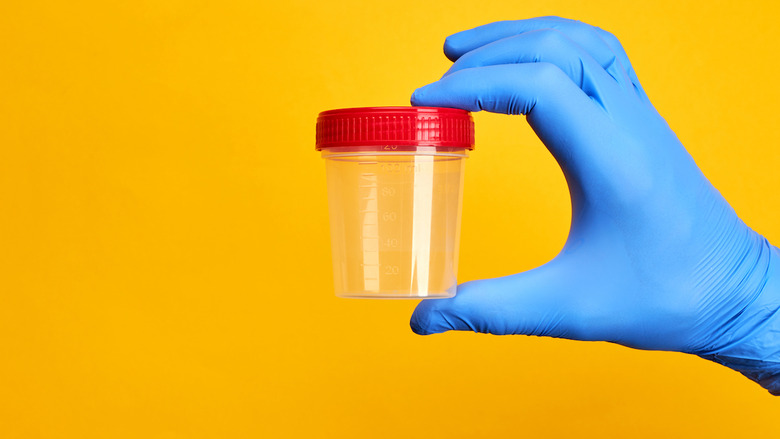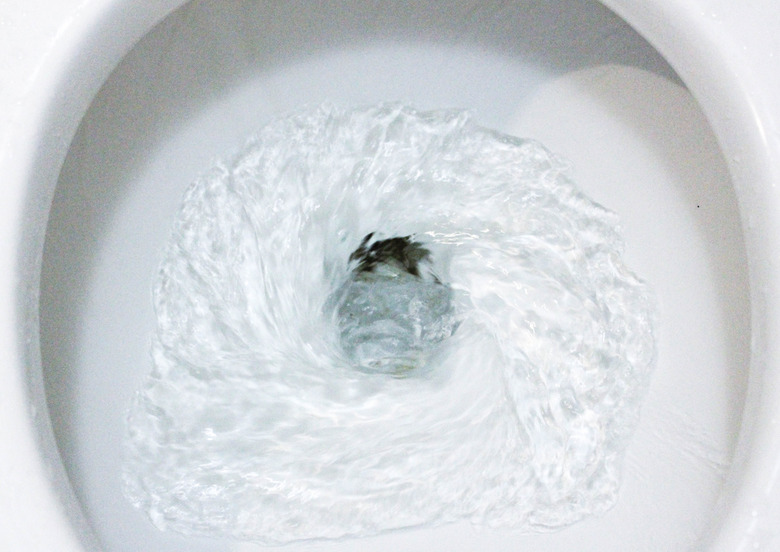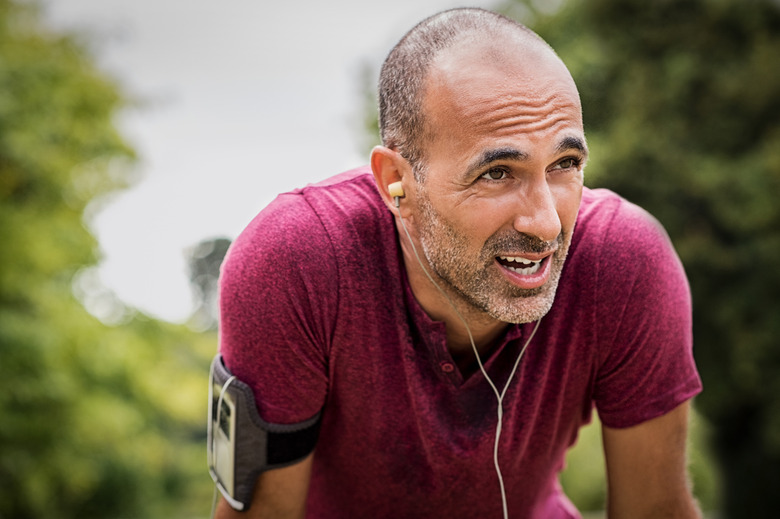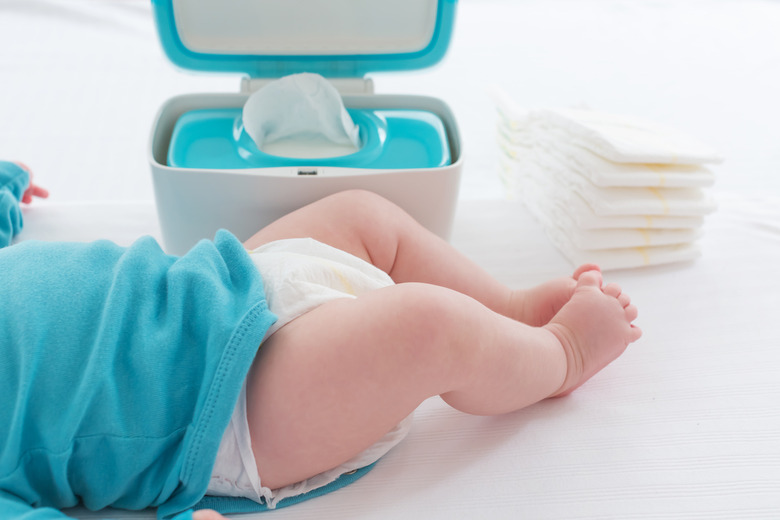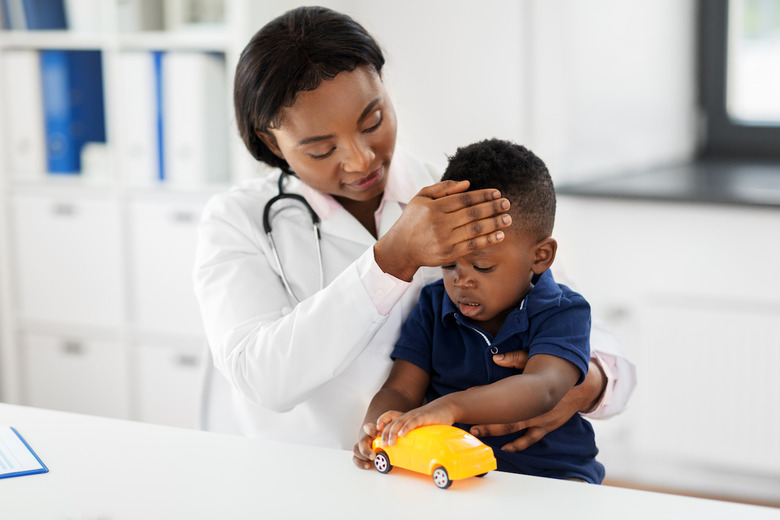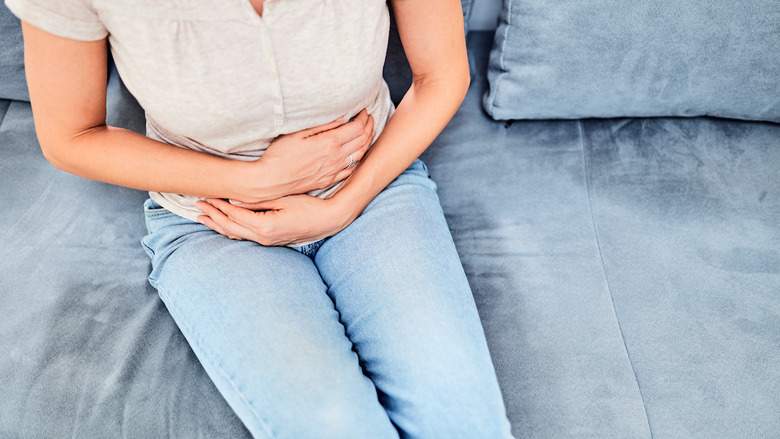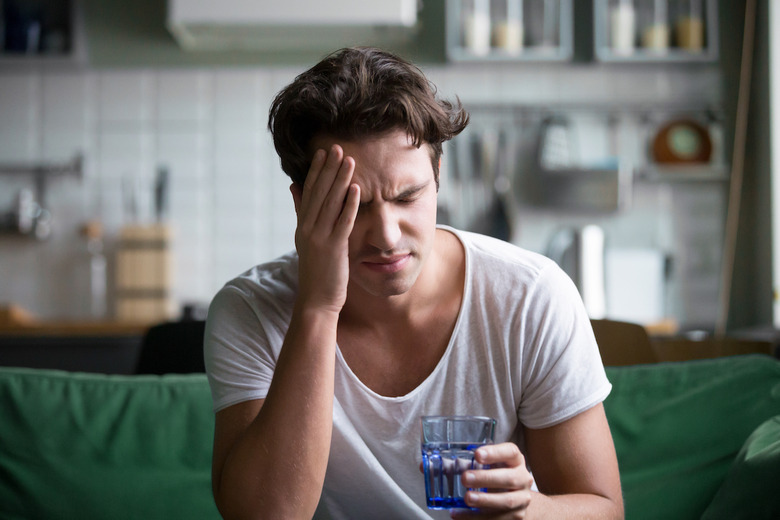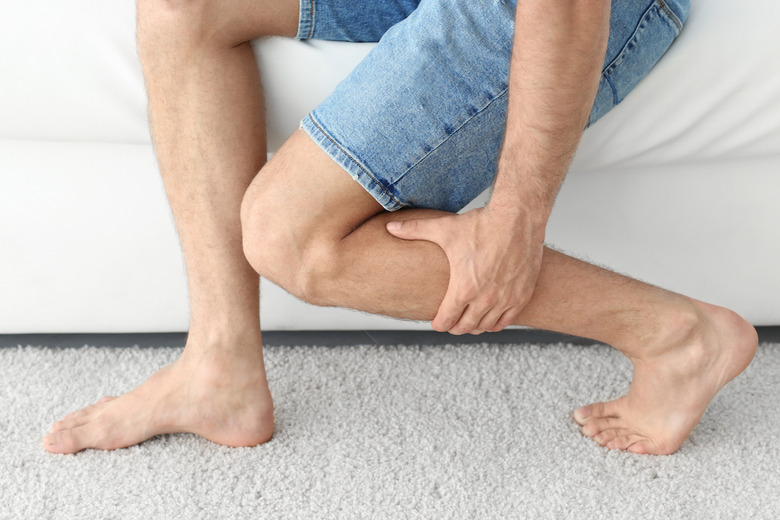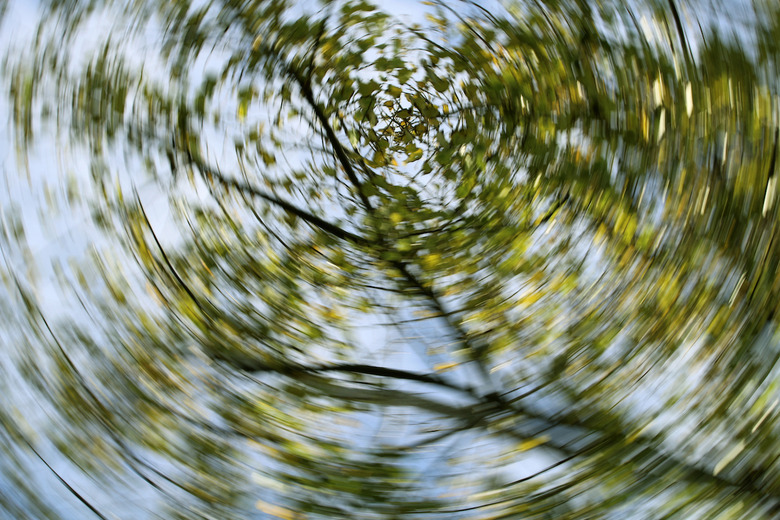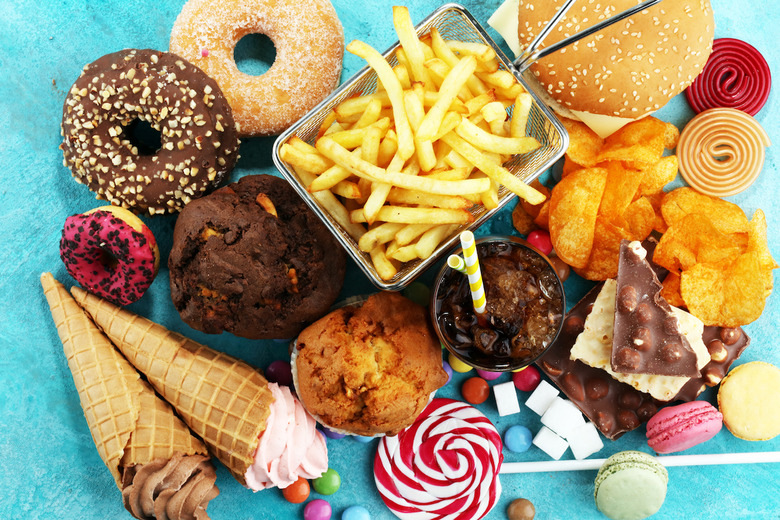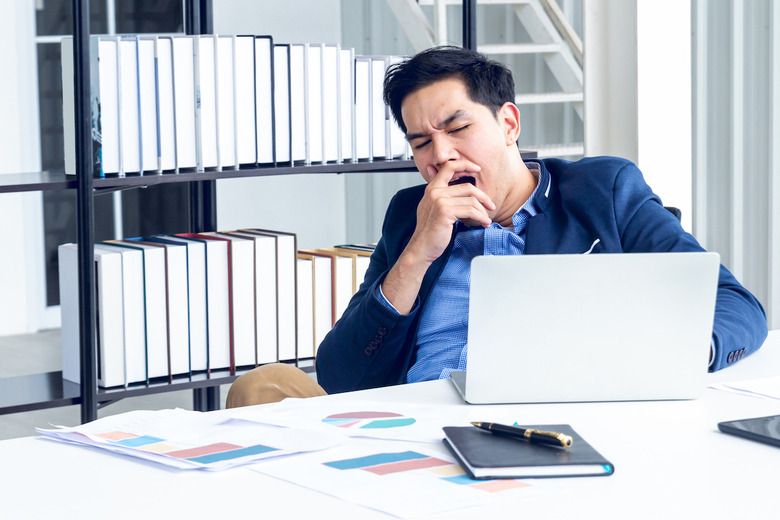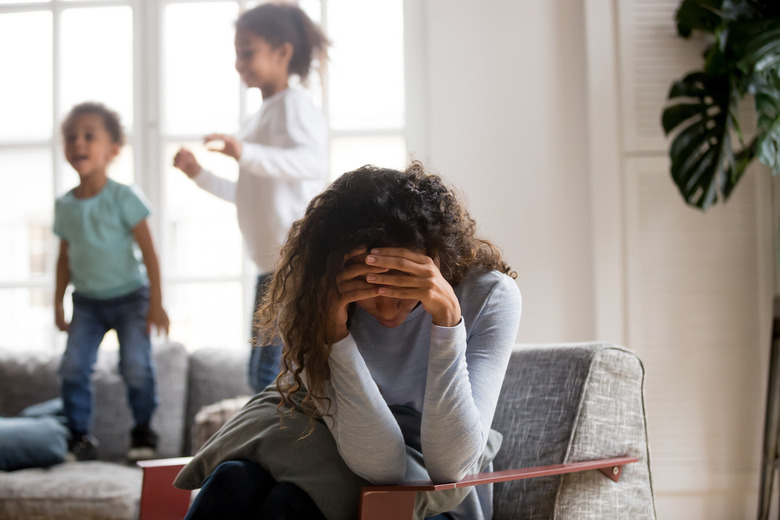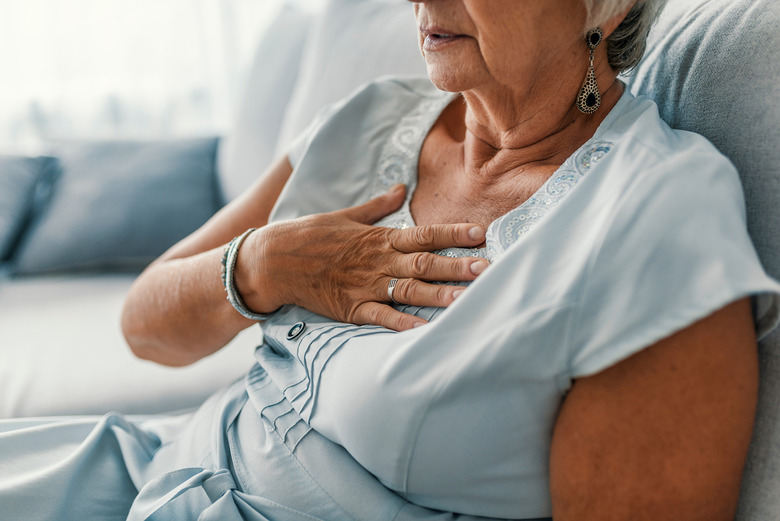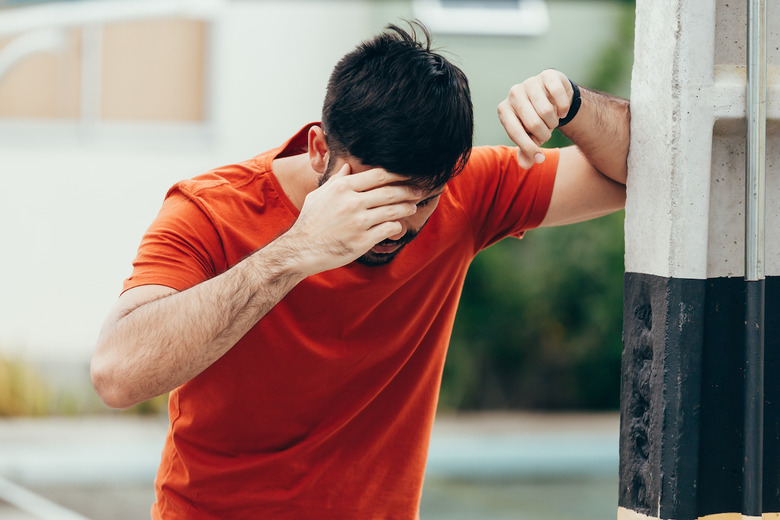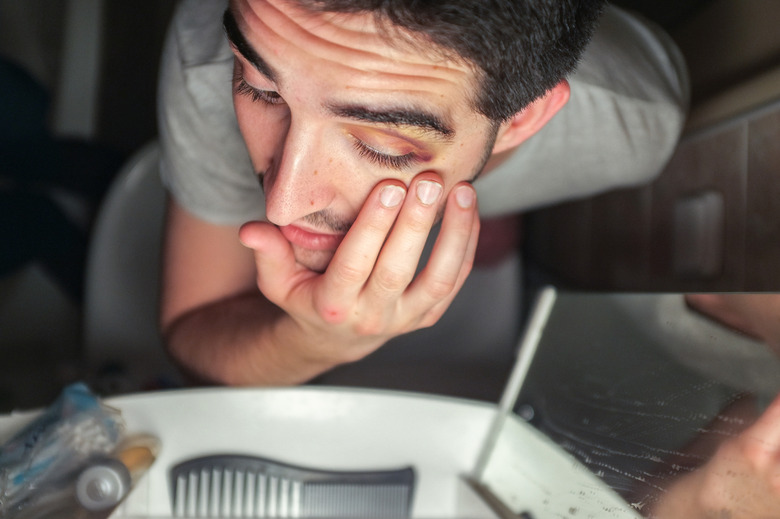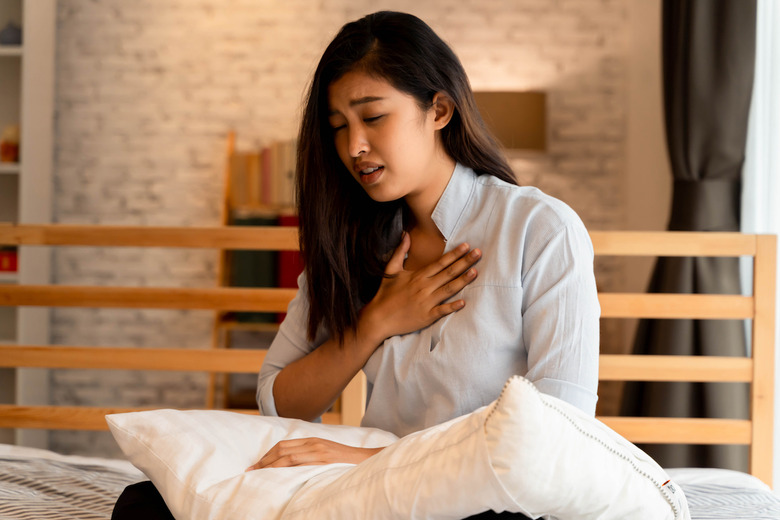Headaches, Dry Skin And Other Signs You Don't Drink Enough Water
Getting enough water every day is as important to your body as a good night's sleep or regular exercise. According to recommendations by the Institute of Medicine and the National Academies of Sciences, Engineering and Medicine, daily water intake should total about 15.5 cups for men and 11.5 cups for women. About 20% of this daily fluid intake typically comes from food, while the other 80% is up to you to drink. When you don't, you may exhibit these symptoms of dehydration.
Feeling very thirsty
Feeling thirsty may feel like the most obvious symptom of dehydration or low water intake, but it's actually not the most reliable indicator. People, especially older adults, may not feel thirsty until they are already dehydrated. That means it is important to take preemptive measures to ensure you stay hydrated. Start by sneaking in a glass of water before your morning latte, cappuccino or whatever coffee drink you fancy.
Cracked lips
Cracked lips are dehydrated lips. Fuel up on hydrating foods like fresh fruits and popular vegetables along with your glasses of water to up your daily water intake.
Dry mouth
When the salivary glands in your mouth don't produce enough saliva, your mouth turns dry. Not only is it a symptom of dehydration, dry mouth can also be caused by tobacco smoking, a habit that experts and doctors say may lead to cancer.
Bad breath
Need a mint? Saliva works as a cleaning agent in your mouth. When you are dehydrated, your body produces less saliva, bacteria growth increases and bad breath begins.
Swollen tongue
Reduced saliva strikes again. As your body works to conserve fluid, less saliva in your mouth can make for a dry or swollen tongue.
Dry skin
Dry skin is a skin type that lacks necessary oils. Although exhibiting similar symptoms, dehydrated skin is a seperate condition. Even oily or combination skin can be dehydrated. Both dry and dehydrated skin may feel rough, turn visibility red, crack and look dull. There is more your skin is trying to tell you beyond whether you're dehydrated.
Feeling tired
Feeling tired could be a consequence of more than just not getting enough sleep. A dehydrated person may feel increasingly fatigued. Dehydration does more than make you feel sleepy, it makes sleeping tough too. Not getting enough water can make your mouth and nasal passages dry, so that when you do sleep, you snore all night and wake up with a scratchy throat.
Dizziness or lightheadedness
One of several signs of an unhealthy heart, dizziness may also be caused by dehydration. So can its sister symptom, lightheadedness. Often confused for each other, dizziness and lightheadedness are not the same. Dizziness refers to the feeling that your surroundings are spinning. When you feel lightheaded, the room around you stands still, but you feel woozy and faint. Best drink a glass of water or orange juice to help alleviate the symptoms.
Dark-colored urine
The color of your urine is a telltale sign of dehydration. Dark yellow, amber or honey-colored urine are all suggestive of possible dehydration. Healthy urine should be a pale straw color or transparent yellow.
Urinating less than usual
Not only the color of your urine but the frequency of bathroom breaks may point to poor hydration. In a single day, most adults produce a little over 2 cups of urine. Should you suspect your urine output has decreased, dehydration from not drinking enough fluids may be the cause.
Sweating less than usual
Sweating less than usual after a great workout for weight loss? Like less urine than normal, less sweat than usual may also be due to decreased fluid intake. On the other hand, excessive sweating may point to other health issues like obesity or heat exhaustion.
For infants, no wet diapers for 3 hours
While our parents taught us many lessons, the intricacies of health and dehydration were likely not topics they covered in detail. Parents to newborns should know infants and children are more susceptible to dehydration than adults. One sign they are low on fluids could be no wet diapers for three or more hours.
High fever in infants
Not only dry diapers but also high fevers could mean too low fluid intake in infants and children. Hydration in kids is especially important because a child's chances of getting sick are reduced when water helps to remove harmful bacteria from their body.
Constipation
Water promotes healthy bowel movements and reduces the risk of constipation. Focus on upping your water intake and fending off dehydration to keep constipation at bay. You could also use a soothing tea to help hydrate and settle an upset stomach.
Headache
A pounding headache may be a sign you are either not drinking enough water or you could be eating too many carbs. All sorts of headaches, from mild to moderate to migraine, may be triggered by a lack of fluids.
Muscle spasms and cramps
Feeling crampy even though you've missed the last few at-home work-outs you had scheduled? Muscle cramps and spasms are two other dehydration symptoms. Dehydration puts your body's electrolytes in limbo, mixing up the normal electrical messages in your body that can lead to involuntary muscle movements.
Confusion
The mess dehydration can make of your body's electrolytes may cause general confusion too. Try gradually fueling up on water to alleviate dehydration before your body grows weaker or more disoriented.
Fainting
Fainting, also known as syncope, is a momentary loss of consciousness. Although this can be due to a serious health condition, fainting may also be caused by dehydration or loss of body fluid. If you are feeling faint, find a safe place to sit, lie down or place your head between your knees to increase circulation to your brain.
Sugar cravings
Do you find yourself wanting all the sugary candy? Being dehydrated may cause you to crave sugar and sweets.
Sluggishness
It's not all the guilty pleasure foods turning you sluggish — lack of fluids may make you more lethargic too.
Irritability
Crankiness and a bad mood can both be signs you have not gotten enough water. One study of 25 young women found that maintenance of optimal hydration is essential to ensure optimal mood. To be less irritable, drink more water. You can also try boosting your happiness hormones by streaming a joyful show or infusing your water with citrus.
Heart palpitations
Heart palpitations can feel like a few different sensations. Your heart may be fast beating, flutter, skip a beat or pound. To keep your heart healthy, drink plenty of water and add these heart-healthy foods to your diet.
Shock
A more general term for a myriad of severe symptoms, shock may exhibit itself in several symptoms already outlined on this list. Confusion, loss of consciousness, sudden rapid heartbeat and decreased urine output are all forms of shock that may be caused by dehydration.
Sunken eyes
Common in both children and adults, eyes that appear sunken, dark or hollow are a symptom of severe dehydration. Sunken eyes may also be a symptom of other eye conditions.
Rapid breathing
Another severe symptom of extreme dehydration, rapid breathing should not be taken lightly. Immediate medical attention is necessary should someone's breathing or heartbeat turn abnormally rapid. Rapid shallow breathing is also a symptom of low blood pressure. If blood pressure is a concern for you, check out these foods and drinks that help lower your blood pressure.
More From The Daily Meal:
26 So-Called 'Healthy' Foods You Should Avoid
The Healthiest and Unhealthiest Frozen Dinners

